What are the common symptoms of constipation ?
The first step in dealing with occasional constipation is noticing changes in your body and trying to understand what they mean. Although there are common symptoms of constipation, every individual can experience these symptoms differently. Your body is unique and only you can recognize when something isn’t quite right. Here are some of the common symptoms you may experience:
Less trips to the bathroom
Having fewer than three bowel movements per week or not going to the bathroom as often as usual may be a sign of constipation.
Difficulty going to the bathroom
When your stool feels dry, hard or when you experience excessive straining or pain while trying to go to the bathroom, you may be experiencing occasional constipation.
Feeling bloated
Bloating resulting from infrequent or insufficient bowel movements is a very common constipation symptom in adults.
Abdominal discomfort and pain
You may feel discomfort or cramping in the abdomen when experiencing constipation.
Struggle to feel empty
Amongst the most common constipation symptoms is the feeling of being blocked: feeling like you haven’t completely emptied your bowels after a movement.
Please be aware that the symptoms of constipation may resemble other medical conditions or may be caused by other health problems. Talk to your doctor or pharmacist about changes in your bowel habits or if you feel other symptoms.
What causes constipation ?
Constipation may be a common condition, however, it doesn’t mean you need to suffer from it for long. We know constipation can be unpredictable, but knowing the symptoms and what causes constipation can help you address it. Some of the most common causes of constipation include the following:
How to manage occasional constipation ?
Don’t worry, there’s no need to change your whole routine ! Start by trying to make small changes to see how your body reacts and go from there. Here are a few simple tips to help you:
Frequently Asked Questions
Let’s talk about constipation
-
Prevalence rates for constipation in women of all age groups are almost twice as high as for men in Canada and North America. This may have to do with the slower movement of food through a woman's intestines, as well as with the effects of female hormones on the digestive tract.
-
Constipation is one of the most common gastrointestinal disorders in adults. Factors that may increase your risk of constipation include:
- Being an older adult
- Being a woman
- Being dehydrated
- Being pregnant
- Eating a diet that's low in fiber
- Getting little or no physical activity or people who are confined to bed due to a physical disability
- Taking certain medications, including sedatives, opioid pain medications, some antidepressants or medications to lower blood pressure
- Having a mental health condition such as depression or an eating disorder
-
The objective of occasional constipation treatments is to alleviate symptoms and improve quality of life. The first course of action most individuals decide to take is:
- Making lifestyle and dietary changes, such as increasing fiber in your diet, drinking plenty of water and doing physical activity daily can help you speed up the digestion of foods in your bowels.
If, after identifying the causes of constipation and addressing these and dietary and lifestyle changes do not relieve occasional constipation, there are a range of therapeutic options that may help provide relief:
- Laxatives, which includes over the counter and prescription treatments including non-stimulant and stimulant laxatives.
-
There are many types of laxatives – each work with your body differently to make it easier to have a bowel movement.
Stimulant laxatives
Stimulant laxatives have a dual action: they induce water and salt transport into the gut which hydrates the stool and makes it easier to pass. In addition, stimulant laxatives stimulate the activity of bowel muscles causing your intestines to contract. These two effects jointly result in an acceleration of stool transit through the colon and have been proven to be very effective - they help get things moving.Stool Softeners
Stool softeners are just that — products that help make hard, dry, painful stools softer. They work by softening the stool in the intestine, which makes it easier and more comfortable to pass.Suppository laxatives
Medicated suppositories are a typically reliable fast-acting dosage form of laxatives that are inserted into the rectum. These suppositories which may contain Bisacodyl or Glycerin aid in moving stool out of the body by providing lubrication and stimulation. They stimulate the bowel muscles in the colon to help encourage a bowel movement within minutes.Fiber supplements
Fiber supplements add bulk to your stool. Bulky stools are softer and easier to pass. Common medicinal ingredients include psyllium fibre or inulin.Osmotic laxatives
Osmotics bring water into the colon and subsequently increase the frequency of bowel movements and the ability for stool to pass through more easily. These laxatives contain poorly absorbed substances that hold additional water inside the colon, drawing water into the bowel. This hydrates the stool and makes it easier to pass. -
DulcoLax® products, and any other laxatives, do not help with weight loss.
DulcoLax® family of products
DulcoLax® products help your digestive system get moving with gentle overnight or fast relief solutions. Find the DulcoLax® product that’s right for you.
Stay informed
Occasionnal constipation is a common condition with a wide range of possible causes. We know how unpredictable and frustrating constipation can be, so we are here to help identify the possible causes and teach you how to addres them.
- Canadian Digestive Health Foundation. Understanding the Prevalence and Impact of Constipation in Canada A Special Report from the CDHF. February 2014
- Mayo Clinic on Digestive Health
- Cleveland Clinic. Constipation: Symptoms, Causes, Treatment & Prevention. July 11th, 2019. Available at: https://my.clevelandclinic.org/health/diseases/4059-constipation
- Web MD. Medically Reviewed by Arfa Cassoobhoy, MD, MPH. Constipation Relief : How To Get Rid of Constipation. August 20th, 2020. Available at: https://www.webmd.com/digestive-disorders/constipation-relief-tips

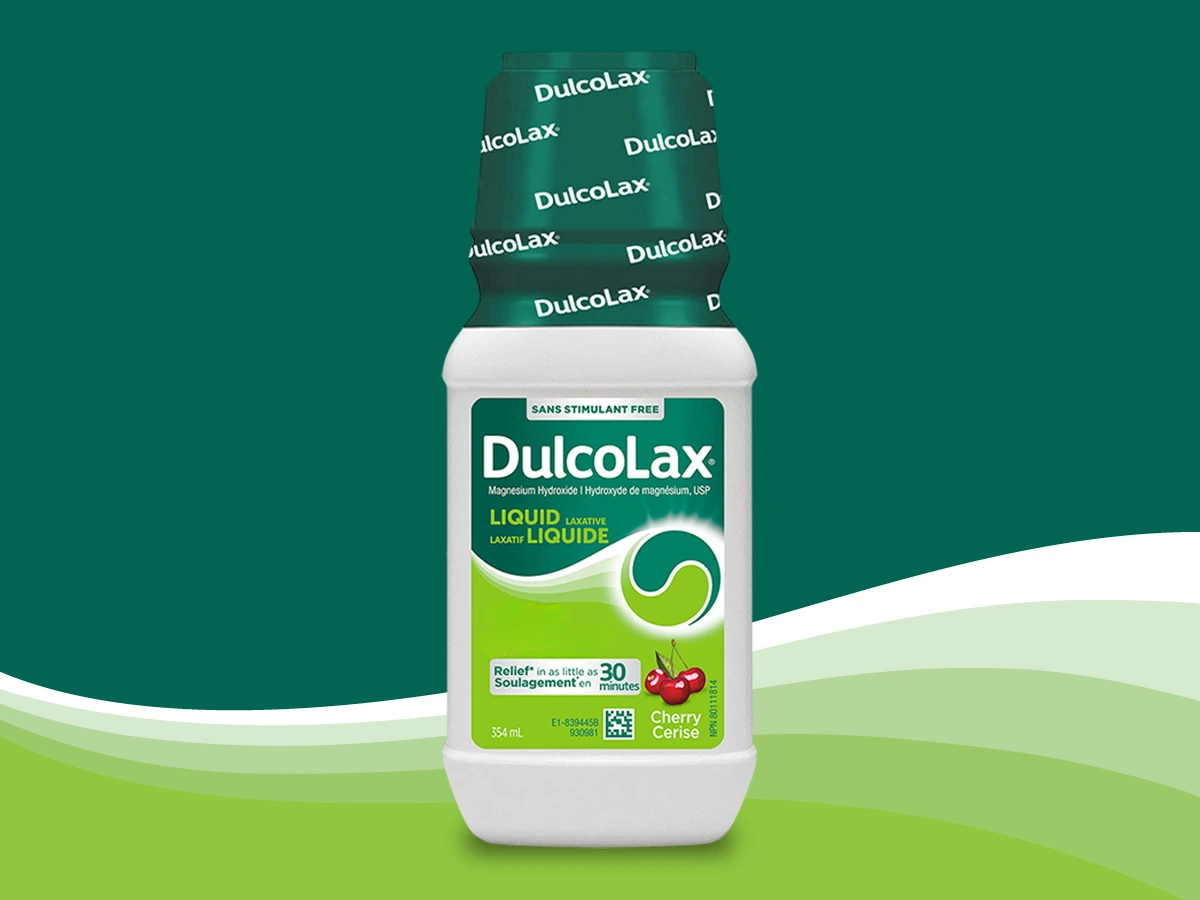
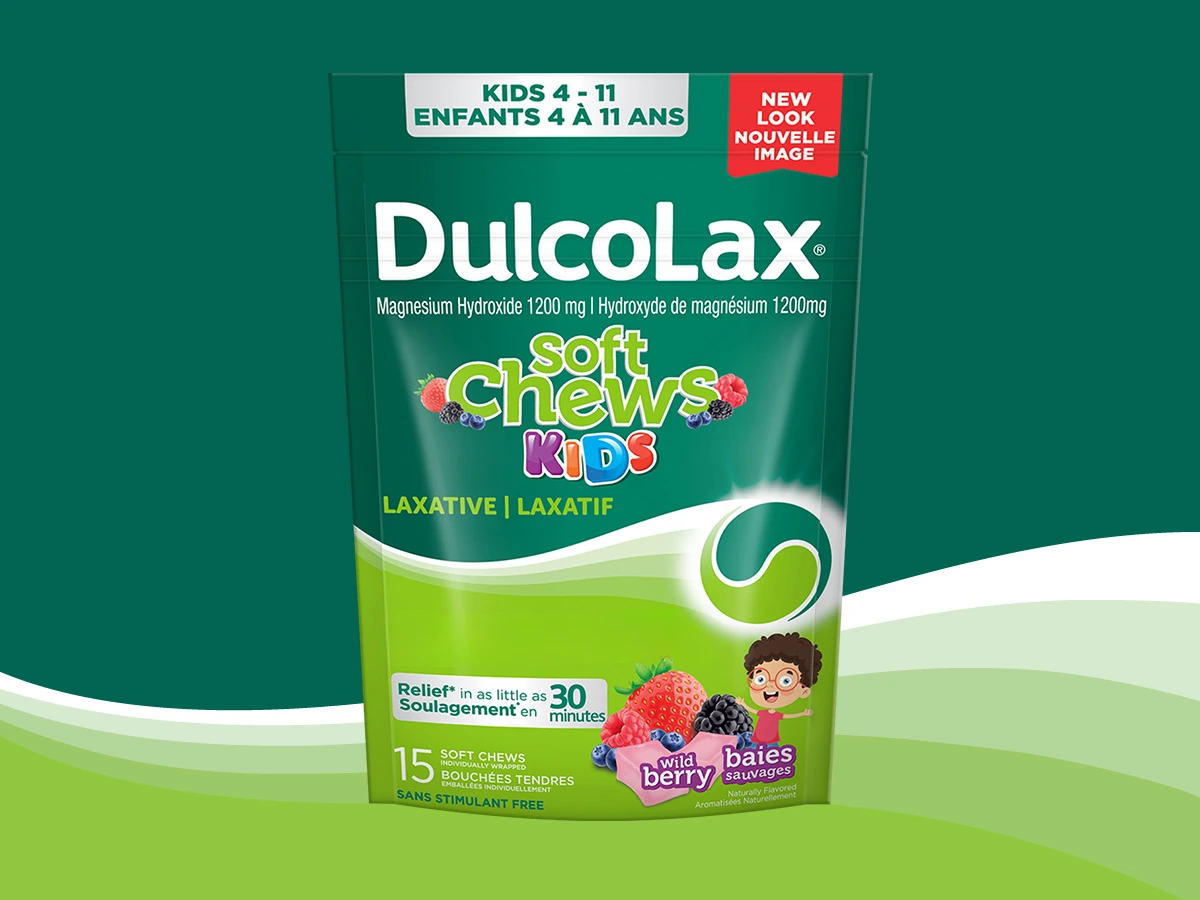
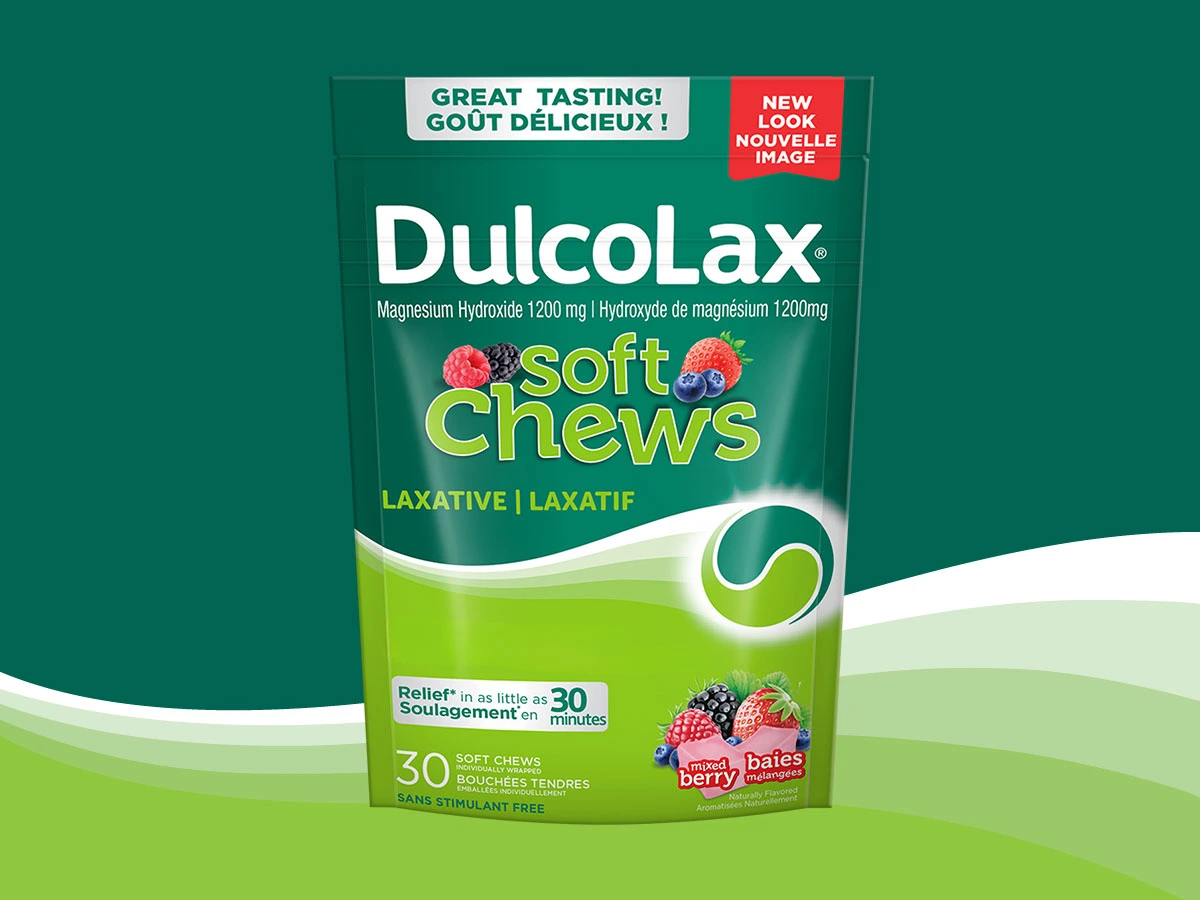
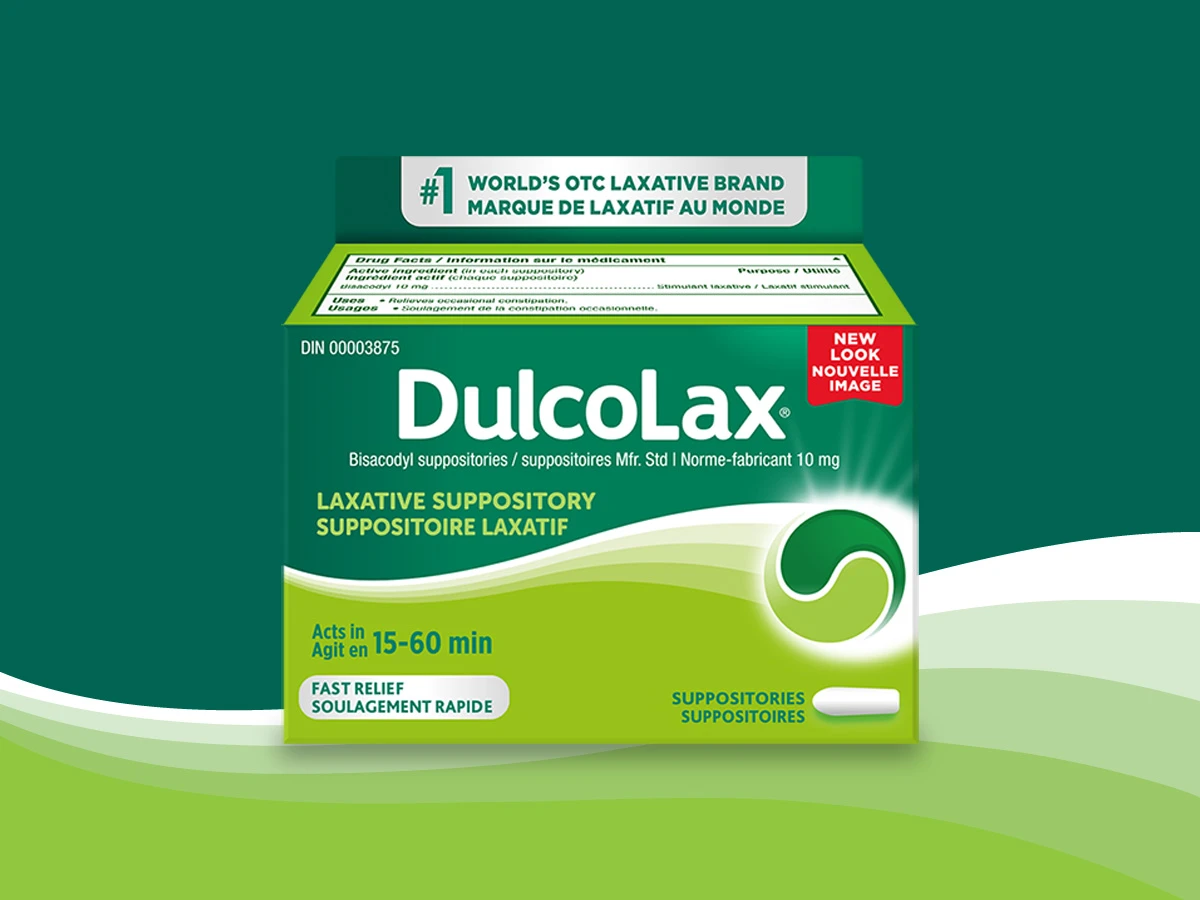
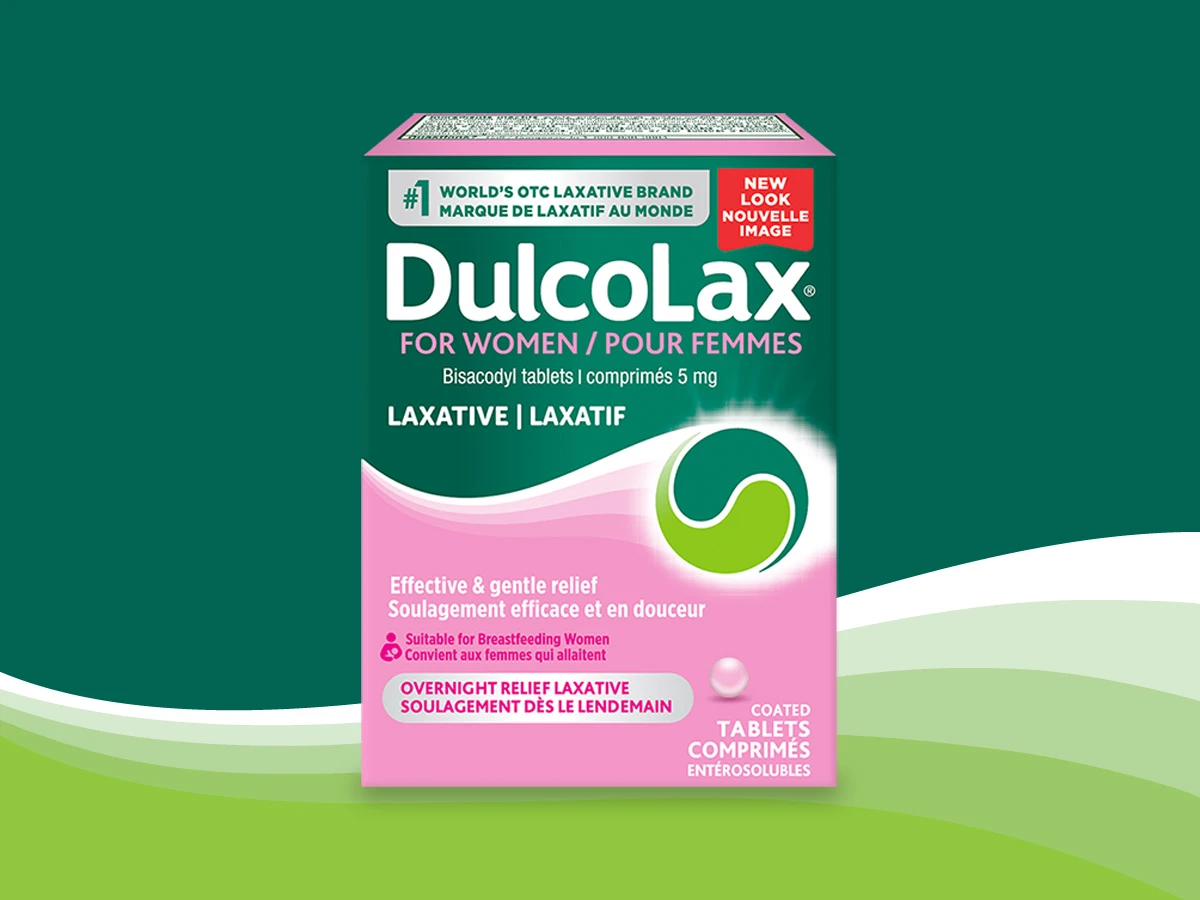
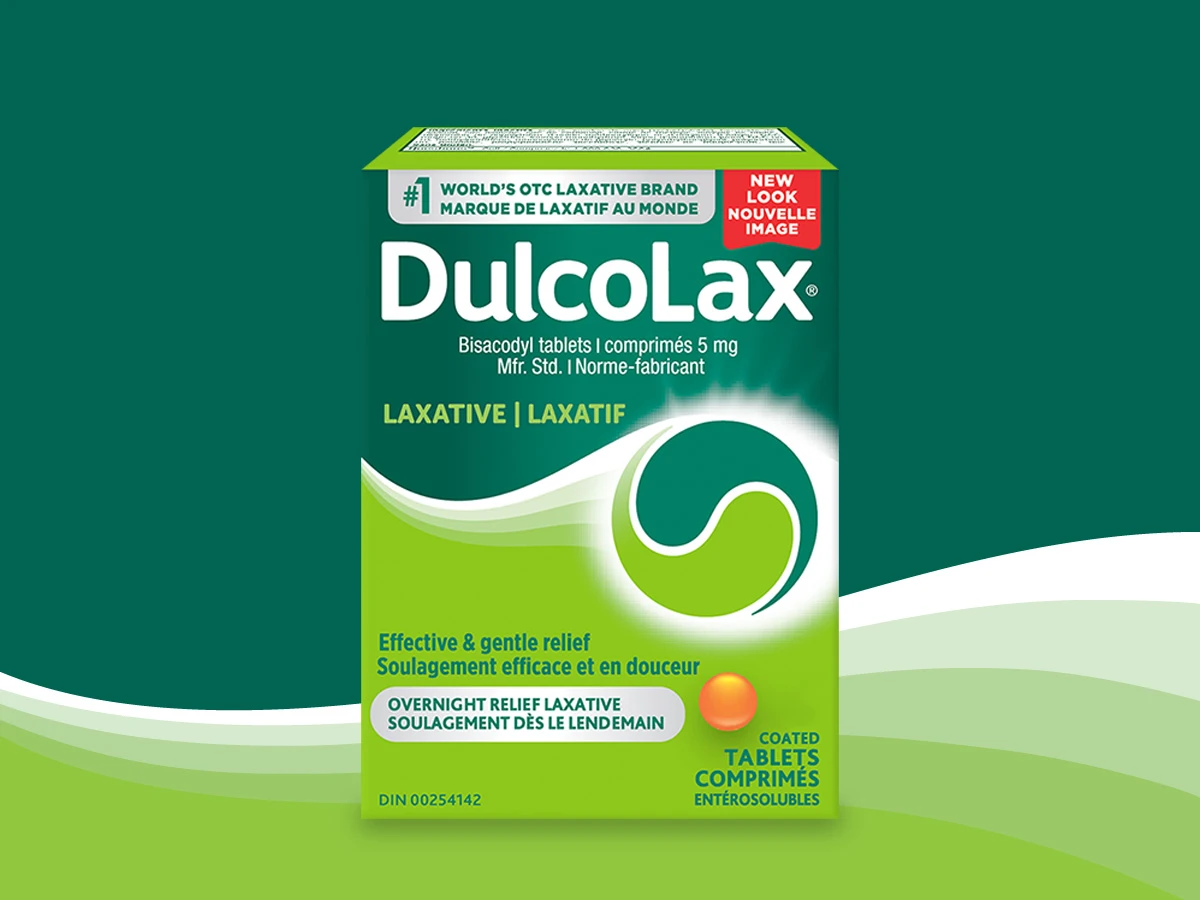
-(1).webp/jcr:content/dulco_img_disorder_hero_occassionalconstipation_800x680%20(1)%20(1).webp)